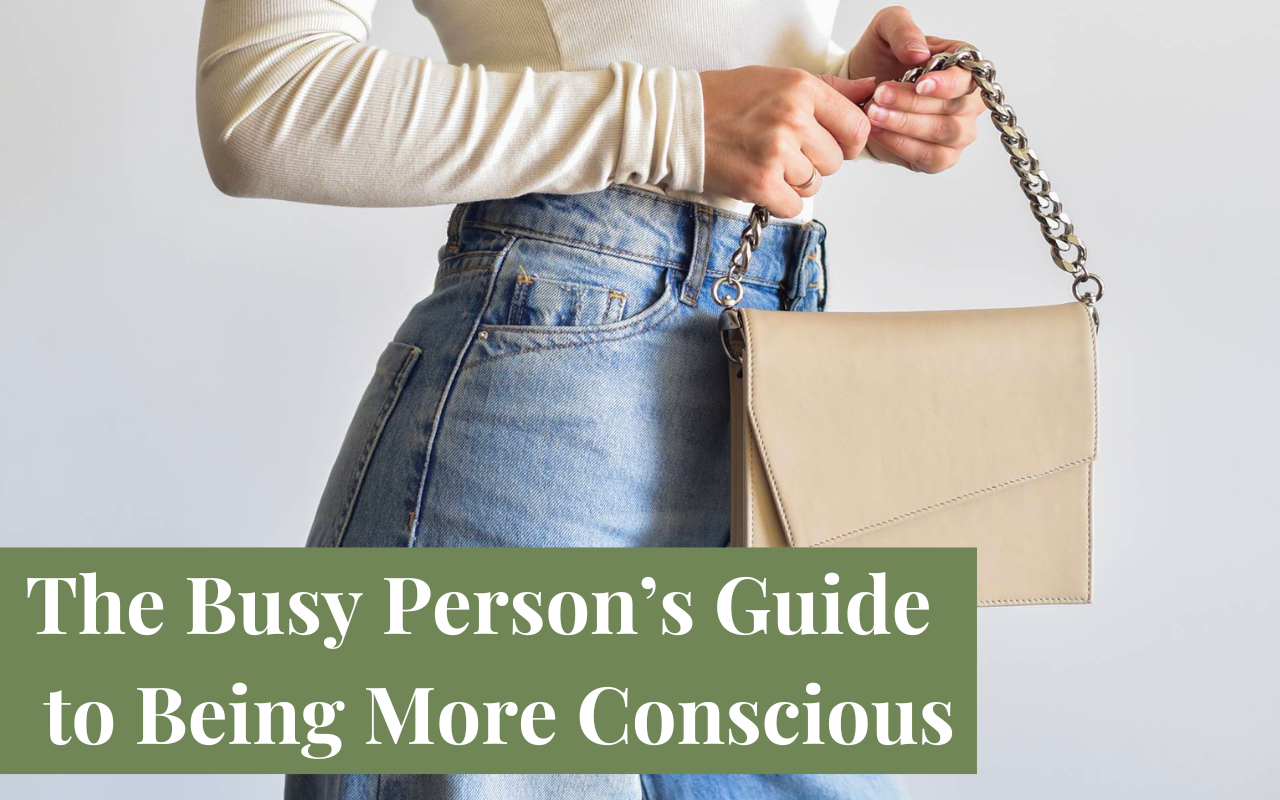The Busy Person’s Guide to Being More Conscious
09 Aug 2023

Before you put this in the ‘too hard’ or ‘someone else can do this’ basket, hear me out.
We’re all aware that the future is looking grim for our environment if we keep up this rate of consumption, and we don’t always love to be reminded of it. As a business owner and mum of 3 pre-school aged children, I don’t have the time or the resources to be perfectly green. And frankly, sometimes, I just don’t feel like it. If that sounds like you, this is a safe space.
There are two figures I can’t get out of my head:
- Australians generate 48 million tonnes of solid waste materials each year.
- Each Australian disposes an average 23 kg of clothing to landfill each year
If that makes you a little uncomfortable but you’re just too busy or think that one household won’t make a difference, this little guide is for you. Being a conscious consumer doesn’t necessarily mean major lifestyle changes - it’s simply about being aware of how you’re spending your money. So without further ado, here are my top 5 small changes to become a more conscious shopper.
1. Slow down your purchase process
I’m notorious for adding everything to cart, and coming back the next day to remove most items. Instead of impulse buying, give yourself a day or two to cool down and consider what you really need (spoiler alert: you probably don’t need all of it). By slowing down your purchase process, you can avoid wasting your precious dollars and creating clutter in your home.
2. Borrow or buy second-hand (and the other way around)
De-cluttering one’s home has to be one of life’s most sobering exercises. I’m not proud of the things I’ve accumulated over the years and only used a handful of times. A basket of unused yarn from when I took up knitting and made three pairs of baby booties, various kitchen appliances and gadgets from the pandemic days… we all have things we hold on to because we don’t want them to end up in landfill.
Before buying something, consider whether it’s a one-time use item that can be borrowed instead, or whether a second-hand one will do the trick. Just because you can afford to buy new doesn’t mean that you should every time. By the same token, if you no longer have use for something, consider selling or donating it - sure, it takes a little bit more effort than throwing it in the bin, but there’s probably someone out there who could use it.
3. Choose durable goods over disposable ones wherever possible
“It's unwise to pay too much, but it's worse to pay too little" - John Ruskin
With the rising cost of everything, making your dollar stretch further is more important than ever. While it’s tempting to buy something because it’s cheap, consider the item’s longevity and where it will end up once you’re done with it. If that H&M t-shirt isn’t going to last 3 washes, is the better quality option that will last you years actually ‘expensive’?
This doesn’t mean you have to break the bank and splurge on quality everything. Be selective and thoughtful - mix your shopping strategy, and do what works for your budget and lifestyle.
4. Choose seasonal, local fruits and vegetables
Without a doubt the easiest way to be more conscious, favouring seasonal and local produce is healthier, more sustainable, and easier on the hip pocket. Reduce food miles by consuming local fruits and vegetables when they’re in season - the shorter the distance between where it’s grown and where it’s consumed means the lower the climate impact..
5. Support better businesses
Think about the businesses you spend your money with: do their values align with yours? If the answer is a resounding yes, every purchase with them will be an investment in what’s important to you, and will help fill your cup. Remember, you hold the power to drive change through your spending habits.
Voila! Being a conscious consumer doesn’t have to be hard and drastic. In fact, small, sustained changes in your mindset is all it takes. In Anne-Marie Bonneau’s words, “We don’t need a handful of people doing zero waste perfectly. We need millions of people doing it imperfectly.”

